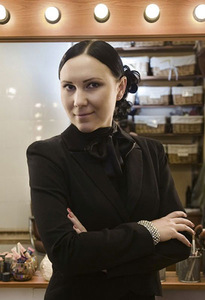Profession - actor. Part 2. Macro level 3
In brief: After the proposal from the Ministry of Culture to change the law on institutions of Lithuanian theatre and concert halls, there appeared the variety of concerns. The country may lose distinctive actor troupes, it may destroy the repertory theatre, and all theatres will become commercial. Do these concerns have a basis? Greta Cholina who has experience in leading an independent budget theatre claims that all Lithuanian theatres are commercial already.
Currently many of the budget and independent Lithuanian theatres operate under the system of the repertoire theatre. Each of them have a list of productions which often or seldom appear on their stages. Some works are shown only 7 times and other may be repeated for more than 60 years. Talking about the threats that the change of law poses, A. Jevsejevas unambiguously states that Lithuania has many examples of the independent repertory theatres, and if it should happen that some actors would become freelancers, it does not mean they would not be allowed to continue playing in the same play.
In turn, G. Cholina argues that "new repertoire does not come together fast, it is a consistent long-time work. Five new productions need at least one year, and to change the whole repertoire - at least five years. If theatre has good plays, there is no point in removing them".
Another worry that comes with the change of law is that budget theatres will suddenly turn from the hearth of culture to commercial institutions. However, actors themselves agree that currently not all budget theatre productions are works of art. According to G. Cholina "Currently, all the theatres - budget and independent - are forced to be commercial. Budget theatres receive funding only for the maintenance of the building and salaries, creative activity is not funded. Managers of such theatres need to think how to make money for new productions, how to provide creative work for the troupe. They need to work in a way that performances would not be detrimental; to look for partners, sponsors, take care of active marketing and publicity."
It is obvious that in theatre everything is related, that is why it is hard to create a creative system. Actors want conditions that would allow them to develop professionally. They want to work with directors, get roles that would allow them to grow and evolve, as well as get a reward and social security for their work. Would a change of law help them achieve that? Ministry of culture using the numbers and experiences of other countries emphasized that the change of law would allow to save more by firing actors who work less and give bonuses to those who work more.
After the introduction of terminal employment contracts, actors would have less opportunities to abuse the guarantees that the budget theatre provides. The heads of theatres would have the tools to change the troupe and compete for good artists and directors. Such change would naturally prompt the convergence of the budget and independent theatres. The system itself would change - the ones who work more would be provided with conditions that would allow them to develop creatively and get bigger guarantees. However we should not forget the older generation actors, because they were already promised guarantees and they cannot adapt to the new conditions. When changing the law, this should be taken into account.






